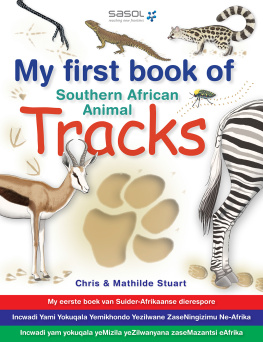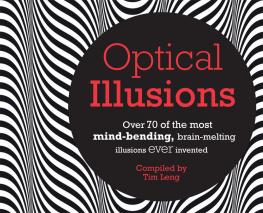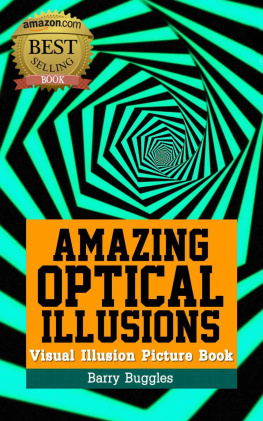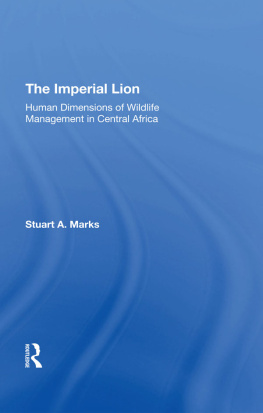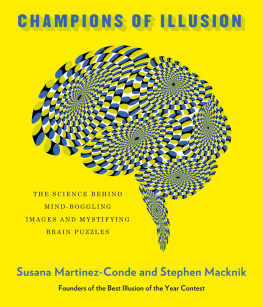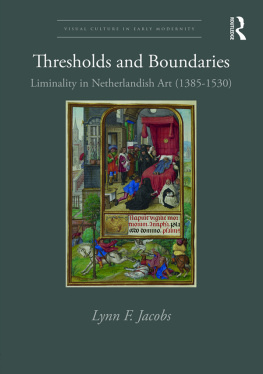First published in 2016 by
Berghahn Books
www.berghahnbooks.com
2016, 2020 Stuart A. Mark
First paperback edition published in 2020
All rights reserved. Except for the quotation of short passages for the purposes of criticism and review, no part of this book may be reproduced in any form or by any means, electronic or mechanical, including photocopying, recording, or any information storage and retrieval system now known or to be invented, without written permission of the publisher.
Library of Congress Cataloging-in-Publication Data
Names: Marks, Stuart A., 1939 author.
Title: Life as a hunt : thresholds of identities and illusions on an African landscape / Stuart A. Marks.
Description: New York : Berghahn Books, [2016] | Includes bibliographical references and index.
Identifiers: LCCN 2015047945| ISBN 9781785331572 (hardback : alk. paper) | ISBN 9781785331589 (ebook)
Subjects: LCSH: Bisa (Zambian people)Hunting. | Subsistence huntingLuangwa River Valley (Zambia and Mozambique) | Wildlife conservationSocial aspectsLuangwa River Valley (Zambia and Mozambique) | Luangwa River Valley (Zambia and Mozambique)Environmental conditions.
Classification: LCC DT3058.B58 M373 2016 | DDC 305.896/391dc23
LC record available at http://lccn.loc.gov/2015047945
British Library Cataloguing in Publication Data
A catalogue record for this book is available from the British Library
ISBN 978-1-78533-157-2 hardback
ISBN 978-1-78920-816-0 paperback
ISBN 978-1-78533-158-9 ebook
Preface and Acknowledgments

Since Aristotle (384322 BCE) and Pliny the Elder (2379 CE) used an ancient Greek proverb that something new was always expected from Africa to depict the bizarre arrays of unknown animals emerging from its interior, Northern Hemisphere inhabitants have organized these species according to contemporary knowledge and used them imaginatively in imperial schemes. Aristotles hypothesis about Africas tantalizing arrays of similar animals (antelopes, cats) was that they were the products of promiscuous matings around scarce watering holes within an arid land (Feinburg and Solodow 2014). During Europes ages of discovery and colonization, Linnean classification provided a planetary consciousness for making sense, a descriptive mechanism, by integrating unknown with known species, and for mastering new worlds. Distant peoples and different cultures also fit within this classification (based upon descriptions, reproductive structures, and hierarchies) as readily as new species of fauna and flora (Pratt 1992). British enthusiasts of natural history extracted specimens from tropical habitats and from contexts within other economic and cultural systems to establish their own visions and schemes (Ritvo 1987). This acquisitiveness of material and cultural collections situated within evolutionary and revolutionary arrangements bore witness to European military and intellectual superiorities over Africa and elsewhere (MacKenzie 1988). Today large landscapes within Africa remain, at least on paper, off limits to their former inhabitants, if not their original creators and erstwhile stewards, as these national parks or protected areas are sustained ineffectively through the resources of outside interests and tourists as well as the dispositions of scientists (Leach and Mearns 1996; Brockington, Duffy, and Igoe 2008).
The conquest, subjugation, and division of tropical Africa among Europeans during the latter part of the nineteenth century defined the area, and much of Sub-Saharan Africa was converted into an imperial laboratory where political, economic, and scientific experiments could be pursued with relative impunity. These experiments had a lasting impact both within and beyond the continent (Tilley 2011: 313). As Helen Tilley demonstrates for the colonial world, these projects and actors were not simply one-way vectors of influences, for Africa and its peoples had profound effects on shaping the key elements of the modern world as well as the structures and concepts of disciplines, theories, institutions, and even laws (2011: 314). She shows that African experiences and precedents were prominent in defining disciplinary boundaries and concepts within anthropology (prehistory, linguistics, biological and sociocultural anthropology), ecology (plant, animal, community), and also the history of international conservation (Hayden 1942; Adams 2004; Tilley 2011).
This book is the product of interdisciplinary studies spread over six decades through the lens of anthropology, animal ecology, development studies and history. It constitutes both a personal quest for understanding as well as a portrayal of global intrusions and progressively imposed state regulations on village lives, identities, and livelihoods as well as wildlife abundance within a prime game management area (GMA) in Zambias central Luangwa Valley. It is also a history of local and individual responses to these interventions. In this valley, marginal for hoe agriculture and inimical to the keeping of domestic stock, wildlife has been a historical as well as significant cultural resource, a definite threat yet an anticipated source of nurturance at all times, especially during droughts. The proximity of dangerous wildlife to human cultivators presents a persistent risk to lives and properties that acknowledges the need for both restraint and protection.
This book is composed of two accounts, two histories, two stories, neither of which is fictitious. My first exposures of fourteen months in the 1960s, motivated by intellectual curiosity and adventure, took additional several years to assimilate and to structure as a dissertation and a book; the second contacts and studies, built upon protracted readings, differing experiences and interactive reflections within the same and different locales globally, occurred over the successive decades. The initial studies provided the baselines and additional guideposts for subsequent accounts about this particular place while the latter inquiries led me to pay closer attention to what was happening to individuals within my host Zambian community and to their more distant connections elsewhere. Both narratives seek to bring order out of what appeared to be, at first blush, chaos and uncertainty. The original explorations provoked the confusions of a personal emersion within anothers organizational culture, which later became the different toils to interpret these local frameworks within conventional professional and disciplinary bounds. These earlier experiences resulted in obtaining an interdisciplinary PhD degree and with publications to counter the crisis narratives about Africans as proverbial destructive actors then in vogue among biologists, conservationists, and administrators during the 1960s and later decades (Roe 1999).







